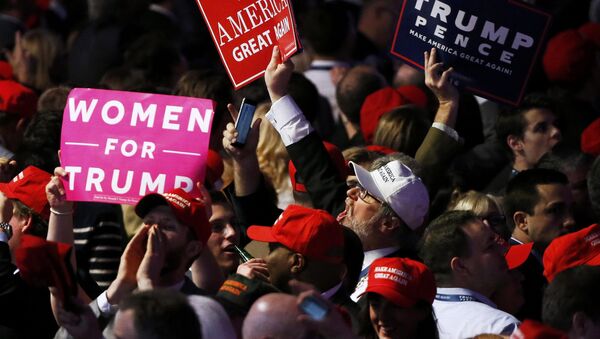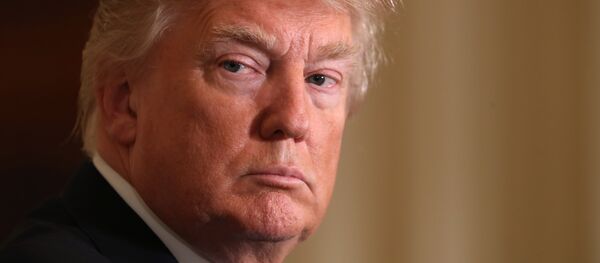For example, 73 percent of respondents approve of Trump's campaign to create new jobs in the United States. This number includes Trump's traditional critics: Democrats, liberals and people of color.
Just shy of half — 46 percent — of respondents say Trump's handling of the North Korean situation is "about right.". A similar ABC/Post poll also reported 51 percent support for Trump's recent missile strike on Syria.
By contrast, Barack Obama was perceived by 53 percent of poll respondents, a majority, as being too weak and cautious on foreign policy at the 100-day mark.
While one might suppose that Trump's poor ratings are solely a representation of poor performance, they are rather indicative of a deep division within US voters.
For example, 96 percent of those who voted for Trump in November say it was the right thing to do, while only 2 percent regret their choice, according to a poll by Langer Research Associates produced for ABC News.
When compared to Hillary Clinton, only 86 percent of her November supporters say they'd back her again, should they have the opportunity to do so right now. According to ABC, this means the result of another vote would be very similar to the outcome of the actual election.
While 1 percent of Trump voters would prefer to back Clinton, 2 percent of Clinton's supporters would support Trump. Most of the Democratic candidate's lost supporters would opt for a third-party candidate, however.
The main reason for Trump's poor rating is unusually strong partisanship, ABC summarizes. While Trump enjoys the support of the most Republicans, Obama enjoyed the support of his own party and 40% of Republicans, to boot.
Respondents remain divided on whether Trump is keeping his campaign promises or on whether he is doing a better or worse job than expected. Half of poll respondents disapprove of Trump's decision to give relatives Ivanka Trump and Jared Kushner positions in his administration.



